Blind trust got me HIV - award winner Aporo
In January this year, 22-year-old Sarah Aporo, then a university finalist, discovered that she had contracted HIV after a tip off about the boy she was dating
In January this year, when university finalist 22-year-old Sarah Aporo discovered that she had contracted HIV after a tip off about the boy she was dating, her first reaction was natural - fear, confusion, blame and anger - but she managed to rise from the ashes of her seemingly crumbled world to fight for young people who are most prone to catching the disease. Today, she is championing the HIV fight towards zero infections reaching out to university students and using social media to educate the masses on stigma and the importance of testing and adherence to drugs. Aporo was also recently presented with a Courage Award for coming out and championing the fight against new infections among the youth. She shared her story of hope after infection with Lydia Lakwonyero
The Story
My boyfriend and I dated for over a year. I remember on the Valentine's Day of 2015, we agreed to wait until marriage to have sex. About five months later, we broke up and I moved on and started seeing somebody else. With my new boyfriend, we tested for HIV before getting intimate. We were both negative, but the relationship did not last long. A few months down the road, I reconciled with my previous boyfriend and we became intimate.
In December last year, a mutual friend of my boyfriend and I, told me she had heard that he might be HIV-positive and that I needed to have my blood tested immediately. I was shaken by this information, but I also trusted my boyfriend, since I had never seen him take any drugs.
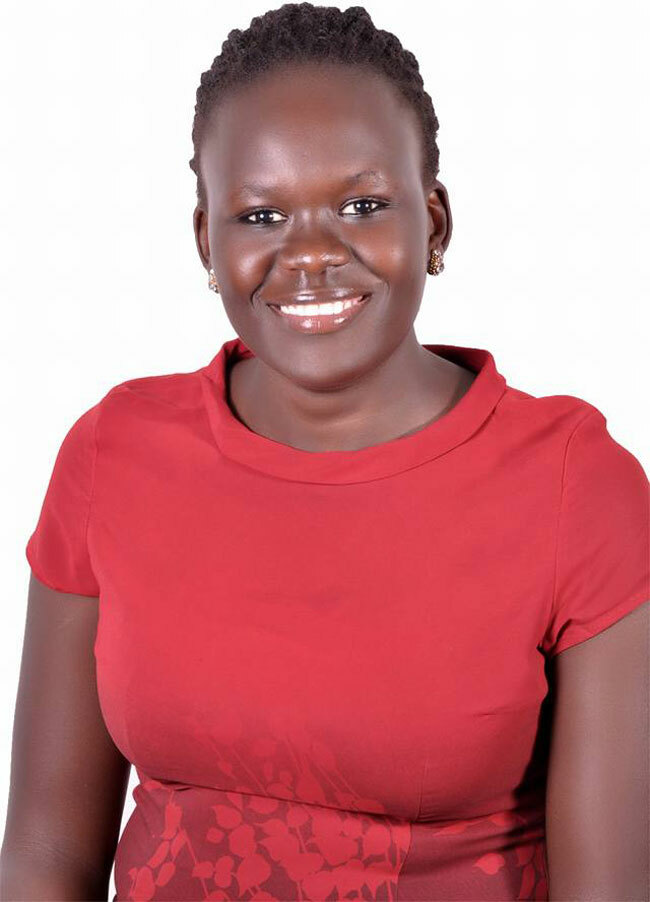
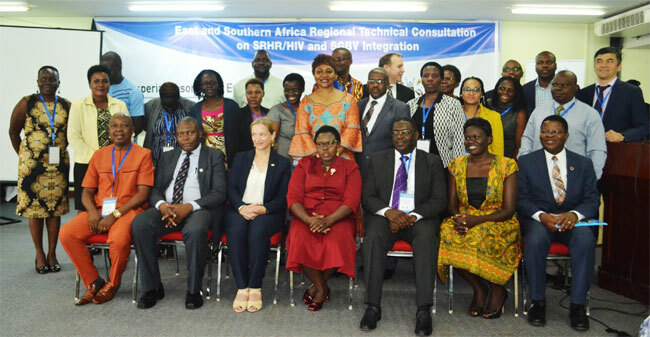
PIC: Aporo (second-right sitting) at the East and Southern Africa Regional Technical Consultation on HIV and SGBV intergration meet
Besides, the Christmas season was upon us, so I decided to postpone the test. On January 2nd, I set off from the office of the deputy principal of Makerere University Business School (MUBS), where I was working as I waited to graduate and headed to the university clinic. I had recently had my blood checked, so I was sure the results would turn out negative.
When the doctor handed me the results, I could not believe what I was seeing. I was HIV-positive. My first question to him was: "Does that mean I will be on medication for the rest of my life?" He said yes. Time stood still. My mind went blank. I remember running back to the office, picking my bag and jumping on a bodaboda, headed for my boyfriend's work place. He was not there.
Once again, I jumped on a bodaboda and headed to Friends Poly Clinic located at Uganda House, where my doctor Dr. Fredrick Nyero, practices. He had tested me a few months earlier and I was negative. In that moment, he was the one person I felt I needed to talk to. Once at his office, I broke the news to him and like me, he too was shocked. He refused to believe it and insisted on doing another test right away. The test confirmed the nightmare that I was now living. The doctor counselled me. He told me I could live a full, positive life as long as I stuck to taking my medication and told me to bring my boyfriend with me the next day, so he too could be tested.
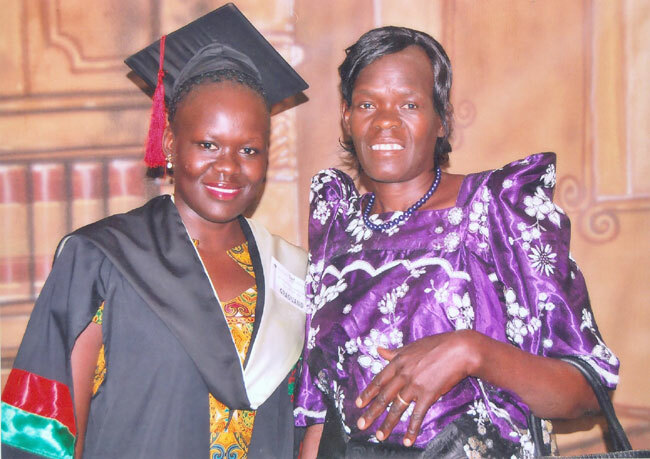
PIC: Aporo with her mother at graduation. Here, she was yet to tell her mother about her new status. She told her after the party
The next day, I was at my boyfriend's office. Our relationship had not been doing very well from around October and he had been dodgy; not picking up my calls and claiming to be too busy to see me. I knew that he would not pick up if I called, so I went to his office and found him there. I asked to speak with him immediately and we went to the lobby. Once there, I broke the news to him and the first thing he said was: "That means I am also HIV-positive".
I told him I wanted him to get tested; that is the only way he would confirm it. He mumbled something about being busy, but I got tough and told him he was going with me to the clinic of my choice to take that test. He accepted. At the doctor's, he, too, tested HIV-positive. And for the first time, I broke down and cried hard. I asked him if he knew that he was HIV-positive all along, but he said he was not aware.
The doctor made appointments for us, so we could come in for counseling, and also advised us to go to the Infectious Diseases Institute (IDI) at Mulago Hospital, where we would have our CD4 count checked and get started on drugs. I kept the appointments, but my boyfriend was not committed. Dr Nyero advised me to put myself first and not let his behaviour interfere with my progress. He told me to try not to stress myself because it would lower my CD4 count and get me sick. I decided to start going to Uganda Cares in Naguru instead, since it was nearer my workplace at MUBS anyway. I have not spoken to the man I now call my ex-boyfriend since then.
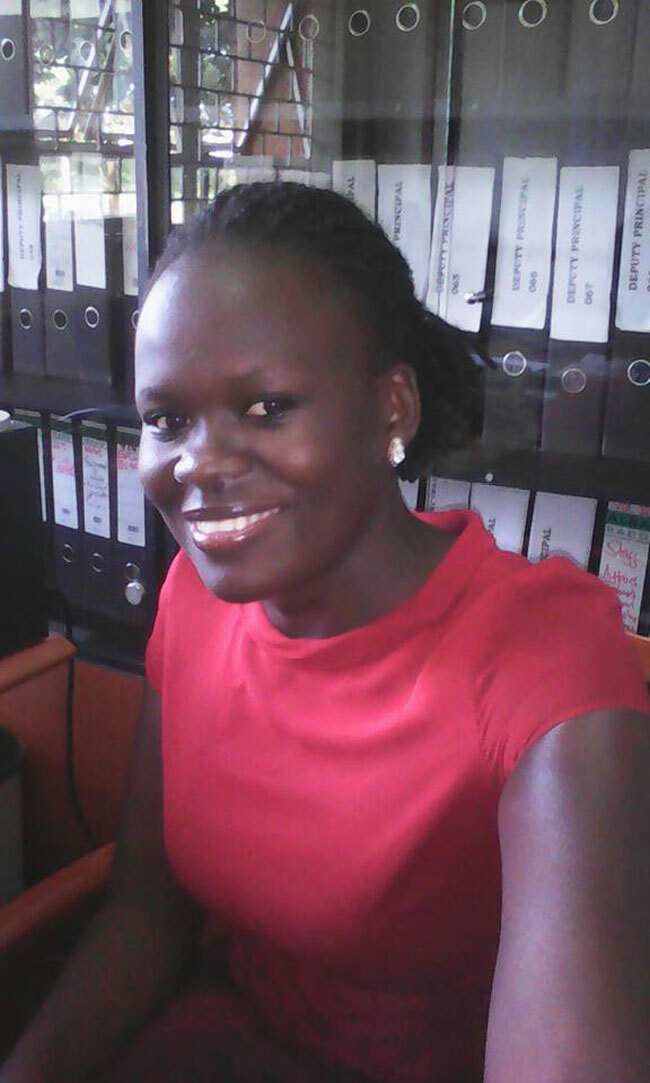
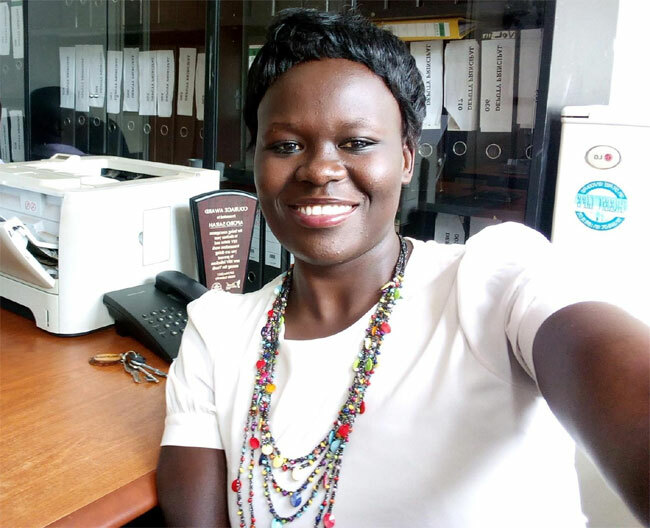
PIC: Aporo at her office at Makerere University Business School in Kampala
Battle of the mind
In the weeks that followed, I cried often. I would sit in a taxi and tell myself "Sarah, in this taxi, you are the one person with HIV. If they knew about it, how do you think they would react?" How would my family and friends take it? I constantly worried, then went back to my place and cried. Would I ever live the life I always dreamed of? Start a family? Find a partner?. It was tough.
Work
The very next day, after discovering my new HIV status, I walked straight to my boss, Prof. Moses Muhwezi's office (deputy principal of MUBS) and told him what had happened. I needed to take a few days off to get myself together and I did not want to lie about the reason. He was so supportive of me. He told me: "Sarah, your work here still stands (I am the administrative assistant at the office). Do not let this demoralise you." He told me that I could still do my masters and PhD like he had always encouraged me to. He gave me the two days off I had asked for.
And even after my days off, his support gave me the confidence to show up to work every day and give 100%. My colleagues did not ever realise that I was going through a tough time until I was ready to tell them. And they too have been so supportive of me. I inform them every time I am going to pick my drugs at Naguru and they give me a few hours off, since sometimes the lines are long, so it takes a bit of time.
Graduation, telling my family
I had finished my studies in May 2016 and was set to graduate in February 2017. I knew that I had to tell my family, but I did not want to ruin the party and get everyone sad. It had been about a month since discovering my status and through counseling, I had gradually recovered psychologically. The week after my graduation party, in my mother's bedroom, I revealed to her that I had contracted HIV.
To my surprise she did not break down and cry. She was clearly shocked, but she looked me right in the eye and told me: "I never expected this to ever happen to you. But we can fight through this. Take your medication faithfully and you will live well."
The rest of the family got to know on my sister's graduation about a month later. We were 12 family members in the home and I delicately broke it to them. It was a very emotional moment for all of us. They all spoke one by one, pledging their love and support. Two of my brothers are doctors, so they educated the rest of the family about the condition and assured me that I would be absolutely fine and that they would stand with me. I have never felt alone since then.
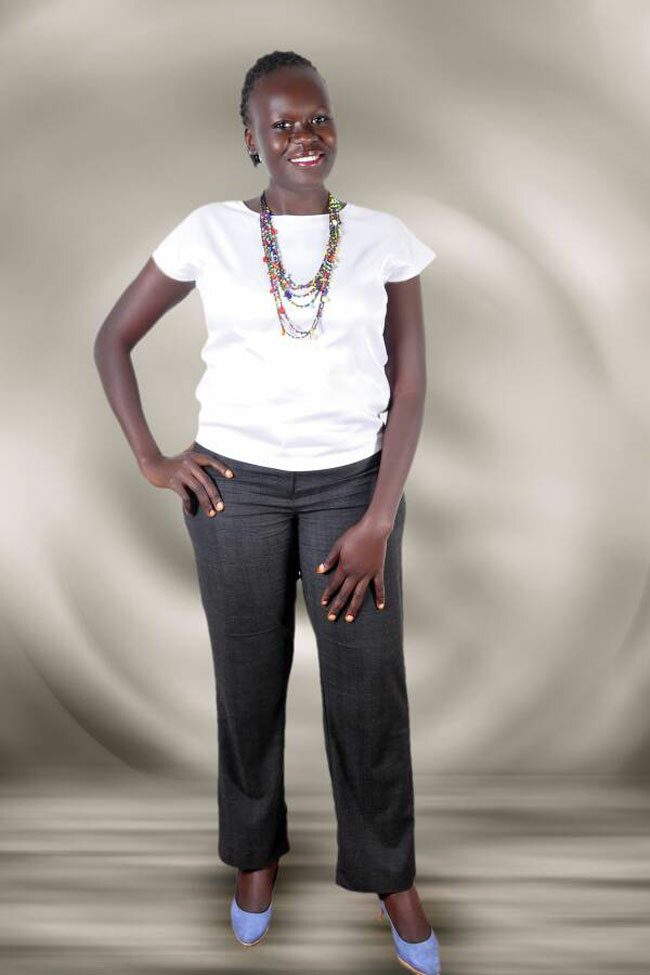
Finding my wings again
The first thing I did was let go of the anger I had towards my boyfriend. He did not ever ask for forgiveness, but I forgave him anyway - for my peace of mind. I would walk this new journey with a sound mind.
My friends and family gave me so much love and support after I told them, which gave me strength, this time, with a new purpose. I would not be quiet about my status. I wanted to educate, especially young people, about HIV and just how easy it is to contract the virus. Young people at universities date a lot and have sex and they needed to hear my message, so they do not fall victim. The HIV fight is for us all after all. They should test for the virus before being intimate with anyone or abstain.
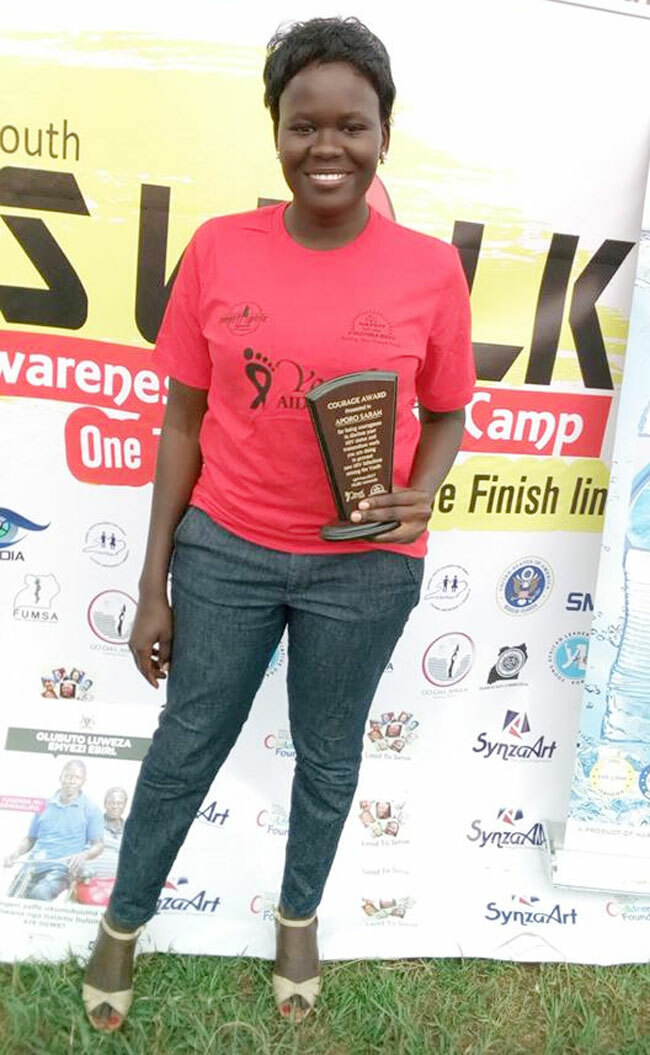
PIC: Aporo was recently presented with a Courage Award by Haven Anti-AIDS Foundation for boldly sharing her status and for the tremendous work she is doing to prevent new infections among the youth
I trusted a man so easily and got betrayed, something I should never have done. I should have demanded that we both got tested before getting intimate. I would not let anyone else get infected, not on my watch. So I teamed up with Barbara Kemigisha, who is also an HIV activist, based at MUBS to fight HIV at campus. We talk to students all the time about the condition to keep them alert.
Sometimes, I meet people who have just tested and talk to them. I remember one time I had gone to pick my drugs at Naguru and saw a woman who had just received her results rush out with a blank stare in her face. It is a look I recognised all too well; that had been me only a few months earlier. I got out of the line and followed her. I told her I too had contracted the virus and she could trust me. She broke down and told me she was going to kill herself by taking poison. For her, life was over. We had a long talk; my hope was that she could draw from the strength I now had. Luckily, she changed her mind.